Publications
Articles, publications, books, tools and multimedia features from the U.S. Institute of Peace provide the latest news, analysis, research findings, practitioner guides and reports, all related to the conflict zones and issues that are at the center of the Institute’s work to prevent and reduce violent conflict.
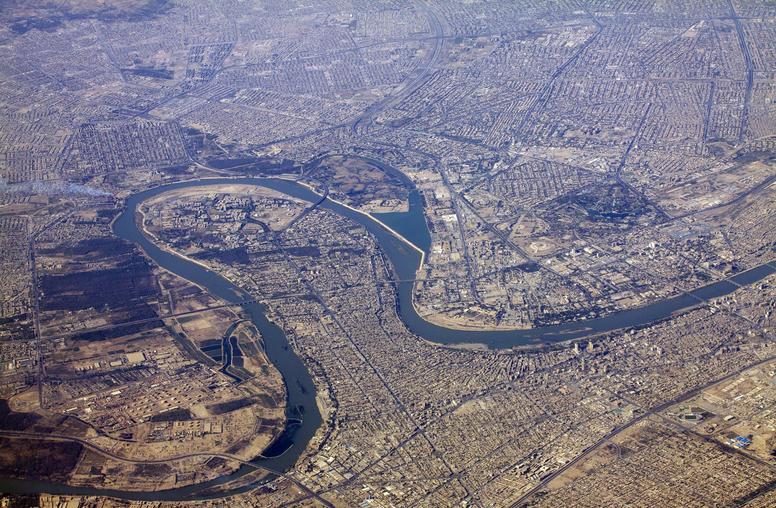
Engaging the Post-ISIS Iraqi Religious Landscape for Peace and Reconciliation
Religious actors in Iraq wield considerable influence, and Iraqis perceive them as playing an important role in moving the country toward peace. This report analyzes the influence of Iraq’s religious actors—who has it, why they have it, and how they exercise it—to illuminate their crucial role in supporting peace and reconciliation efforts and to help policymakers and practitioners understand how to engage them in efforts to advance peace.

Engaging the Post-ISIS Iraqi Religious Landscape for Peace and Reconciliation (Arabic)
Religious actors in Iraq wield considerable influence, and Iraqis perceive them as playing an important role in moving the country toward peace. This report analyzes the influence of Iraq’s religious actors—who has it, why they have it, and how they exercise it—to illuminate their crucial role in supporting peace and reconciliation efforts and to help policymakers and practitioners understand how to engage them in efforts to advance peace.
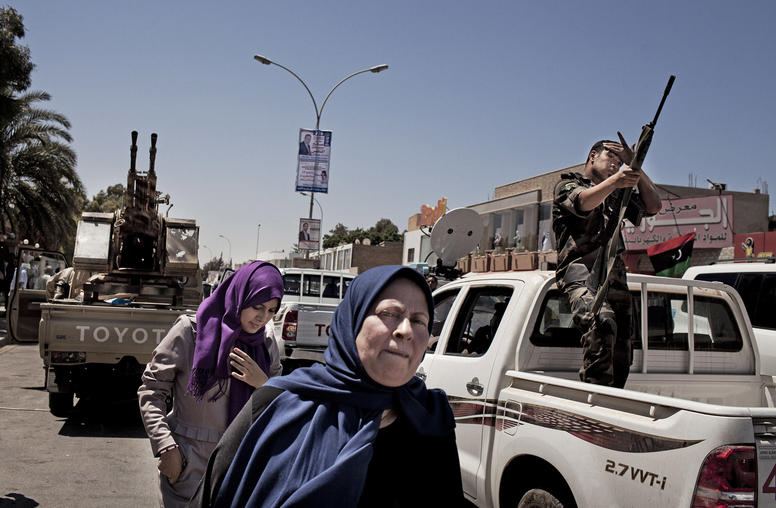
To Help End a War, Call Libya’s Women Negotiators
As Libya struggles to end an armed conflict that has only widened this year, it should turn to a hidden resource: the traditional peacemaking roles of its women. As in many countries facing warfare, women have long played a key role in negotiating or mediating conflicts within families, clans and local communities—but are overlooked by official institutions and peace processes. Amid Libya’s crisis, one such “hidden” peacemaker is Aisha al-Bakoush, a hospital nursing director who has expanded her healing mission from medical illnesses to armed conflict.
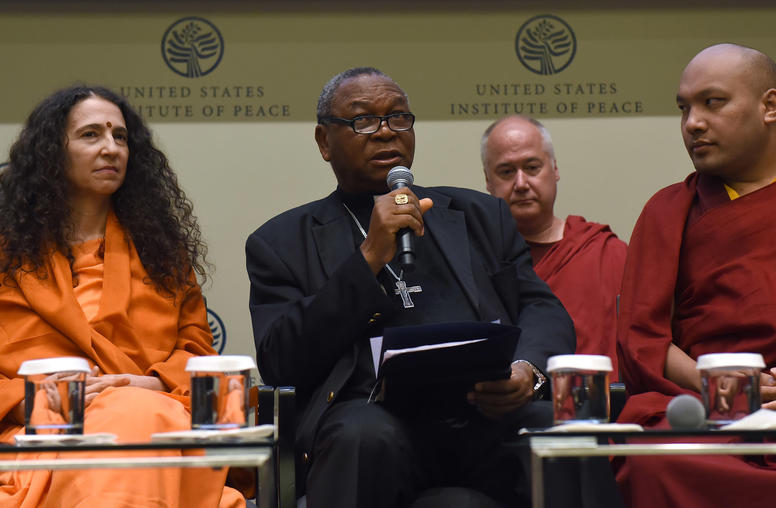
To Defend Religious Freedom, Try Peacebuilders’ Strategies
News headlines in recent months report attacks on places of worship in lands as disparate as Northern Ireland, Syria and Ethiopia. Governments and civil society organizations have expressed rising concern over violence and government restrictions against religion—a concern that was visible in July when nearly 1,000 people gathered at a State Department conference to advance religious freedom. At that conference, some discussions offered a useful idea: that activists and governments might better protect religious freedom by borrowing tactics from specialists in conflict resolution.
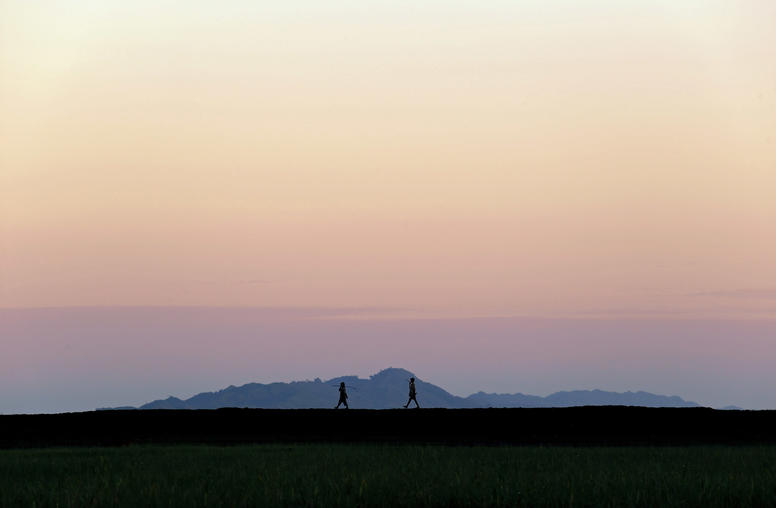
The Religious Landscape in Myanmar’s Rakhine State
This Peaceworks report maps the religious landscape of Myanmar’s Rakhine State, focusing in particular on the current and potential influence of religion in peace and reconciliation efforts. Part of a broader USIP initiative to map the religious landscape in conflict-affected environments, it presents key findings and offers recommendations to enable policymakers and peacebuilding practitioners to better navigate and engage within Rakhine’s religious landscape.
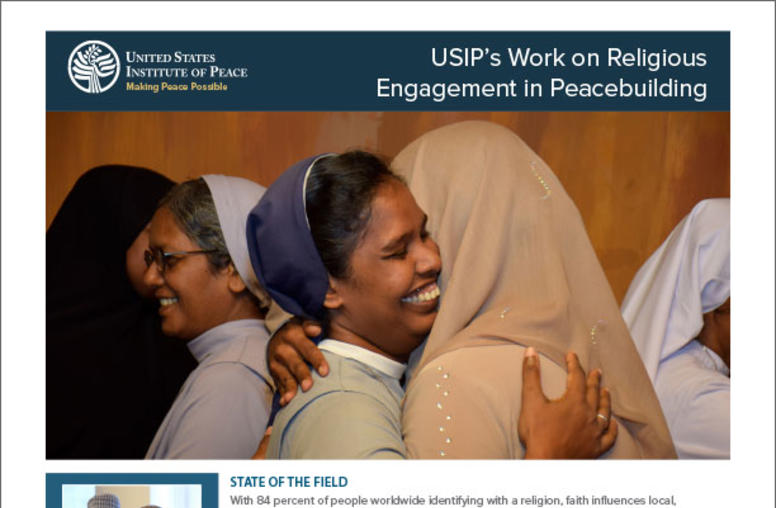
Religious Engagement in Peacebuilding
With 84 percent of people worldwide identifying with a faith tradition, religion influences local, national, and international decision-making. Across the globe, violent extremism often is couched in religious terms, and religious discrimination is on the rise. At the same time, people of faith and religious organizations frequently are on the frontlines of peace efforts, assisting communities affected by violence. Although religious considerations have been marginal to peace efforts historically, governments and peacebuilding organizations increasingly recognize the importance of religion.
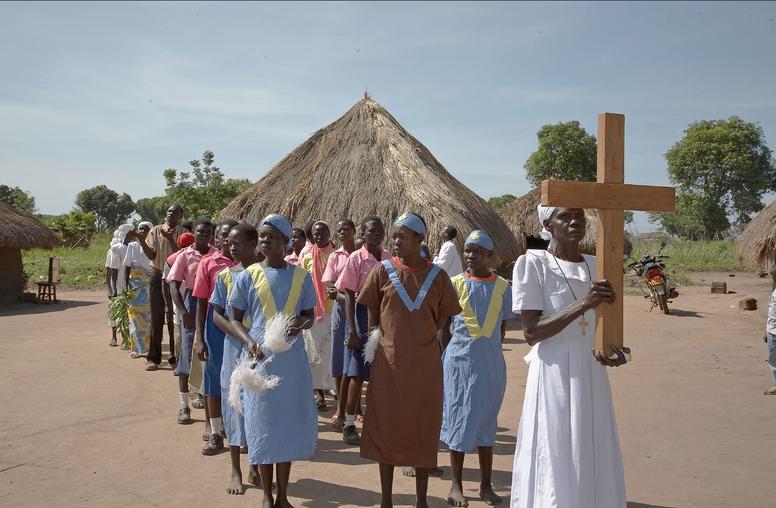
The Religious Landscape in South Sudan: Challenges and Opportunities for Engagement
Since the beginning of South Sudan's civil war in 2013, the country's religious actors have sought to play an active role in turning the tide from war and violence to peace and reconciliation. Drawing on interviews, focus groups, and consultations, this report maps the religious landscape of South Sudan and showcases the legitimate and influential religious actors and institutions, highlights challenges impeding their peace work, and provides recommendations for policymakers and practitioners to better engage with religious actors for peace.
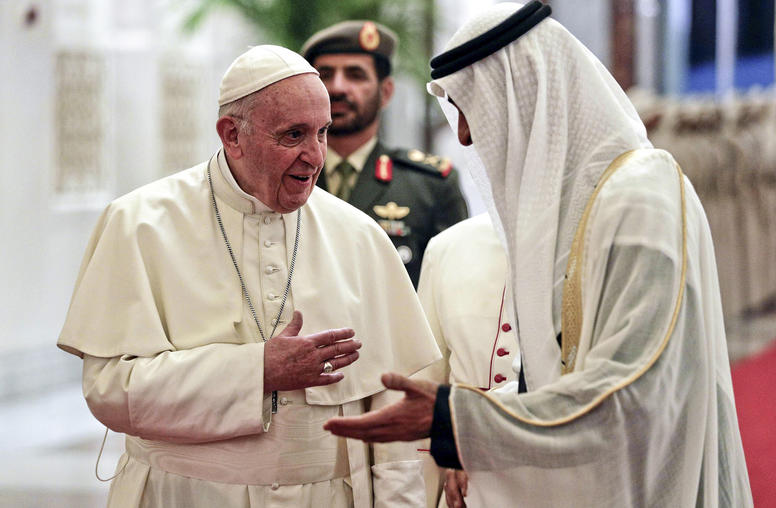
Pope Francis in the Cradle of Islam: What Might It Bring?
Pope Francis’ recent sojourn in the Arabian Peninsula was a powerful symbolic advance for interfaith dialogue: the first visit by a Roman Catholic pontiff to the original homeland of the Islamic faith. Francis joined eminent Muslim, Jewish and other Christian clerics in an appeal for the communal coexistence so desperately needed by a world suffering violence and persecution across humanity’s religious divides. The visit’s moving imagery included Christians and Muslims together attending the first papal mass on the peninsula. Yet this powerful symbolism will have real impact only if it inspires us all to take concrete steps—notably by governments, educational institutions and faith-based organizations.
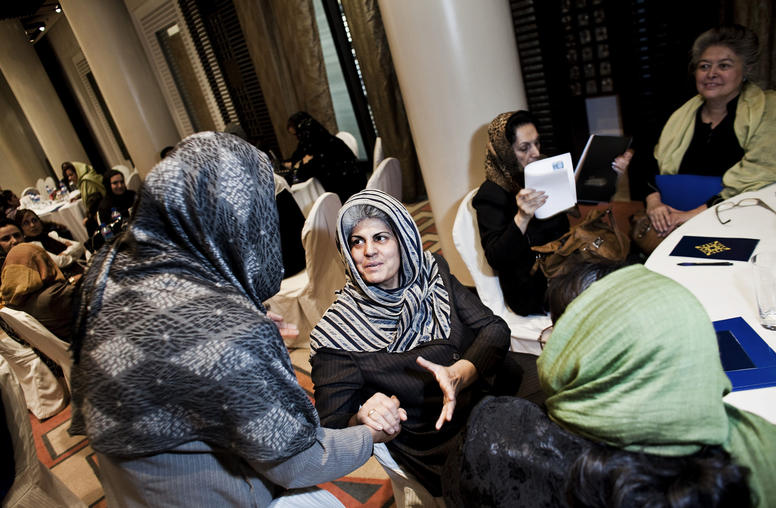
How can we negotiate with the Taliban? Afghan women know.
Afghan political leaders met in Moscow this week with Taliban representatives amid new momentum in diplomatic efforts to end Afghanistan’s war. Like other recent discussions, including those between U.S. envoy Zalmay Khalilzad and Taliban representatives in Qatar, Afghan women remain almost entirely excluded. Yet mostly unnoticed amid the formal diplomacy, Afghan women at their country’s grass roots already have managed negotiations with local Taliban leaders.
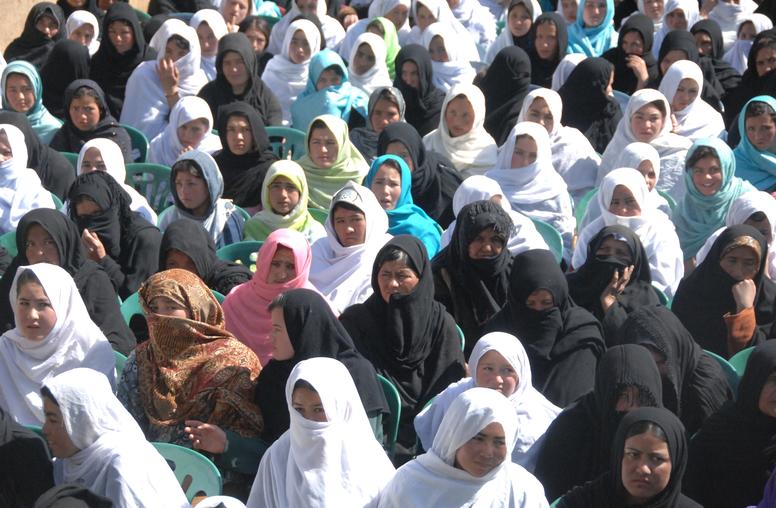
How can Afghans make peace AND protect women? Meet Ayesha Aziz.
After nearly 40 years of war, Afghanistan and the international community are urgently seeking paths for a peace process. But amid the tentative efforts—a three-day ceasefire in June, the peace march across the country by hundreds of Afghans and talks by U.S. envoy Zalmay Khalilzad—a somber question hangs for women and human rights advocates. How can Afghanistan make peace with the Taliban while protecting democracy and women’s rights?